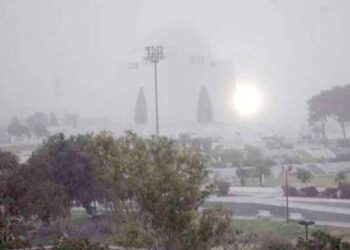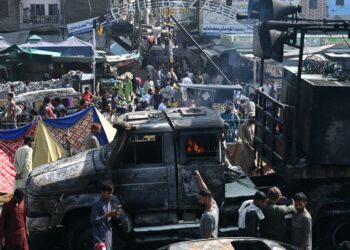The Israeli army has once again claimed that Hashim Safiuddin, the successor of the martyred head of Hezbollah, Hassan Nasrallah, was killed in an airstrike in Beirut, the capital of Lebanon, at the beginning of this month.
The Israeli army has claimed that its expected leader Hashem Safiuddin been martyred during an aerial bombardment of the bases of the Iranian-backed Lebanese group Hezbollah in Beirut 3 weeks ago.
However, Hizbollah has not confirmed any kind of martyrdom of Hashim Safiuddin, nor has it issued any statement in this regard.
It should be remembered that the Israeli forces had also claimed on October 4 that Israel had targeted the senior official of Hezbollah, Hashim Safiuddin, on the premises of Beirut International Airport, but this has not been confirmed yet.
Now this statement has been issued by the Israeli army: “It can be confirmed that in an attack about 3 weeks ago, the head of the Hezbollah Executive Council, Hashim Safiuddin, and the head of the Hezbollah Intelligence Directorate, Ali Hussain Hazimah.” He was martyred along with other commanders of Hezbollah.
It should be noted that Israel targeted the martyred head of Hezbollah Hassan Nasrallah in an attack on the night of September 27 in Beirut in which he was martyred along with his daughter Zeenat Nasrallah.
A Hezbollah source said at the time that they had lost contact with Hashem Safiuddin, the cousin of the group’s martyred leader Hassan Nasrallah, who will replace Hassan Nasrallah as the head of the Iranian-backed Lebanese group.
After confirming the martyrdom of Hashim Safi al-Din, Israeli Army Chief Lieutenant General Herzi Halevi stated, “We have reached Nasrallah, his alternatives, and Hezbollah’s senior leadership.”
Lieutenant General Herzi Halevi further stated, “We will reach every individual who poses a threat to the security of Israeli citizens.”
It is noteworthy that Hashim Safi al-Din played a significant role in negotiations for Hezbollah last year and addressed various events in the absence of Hassan Nasrallah due to security reasons.





















